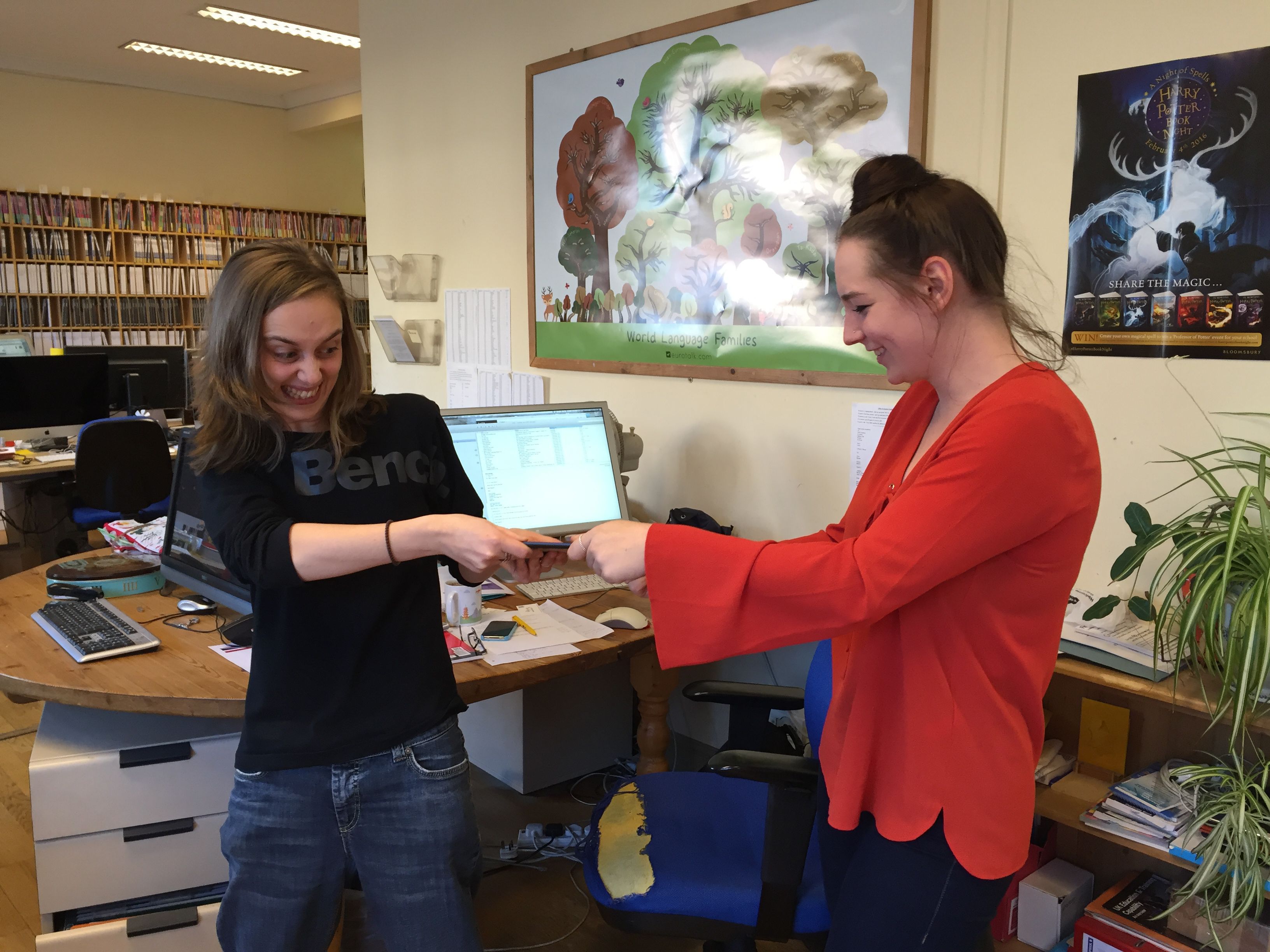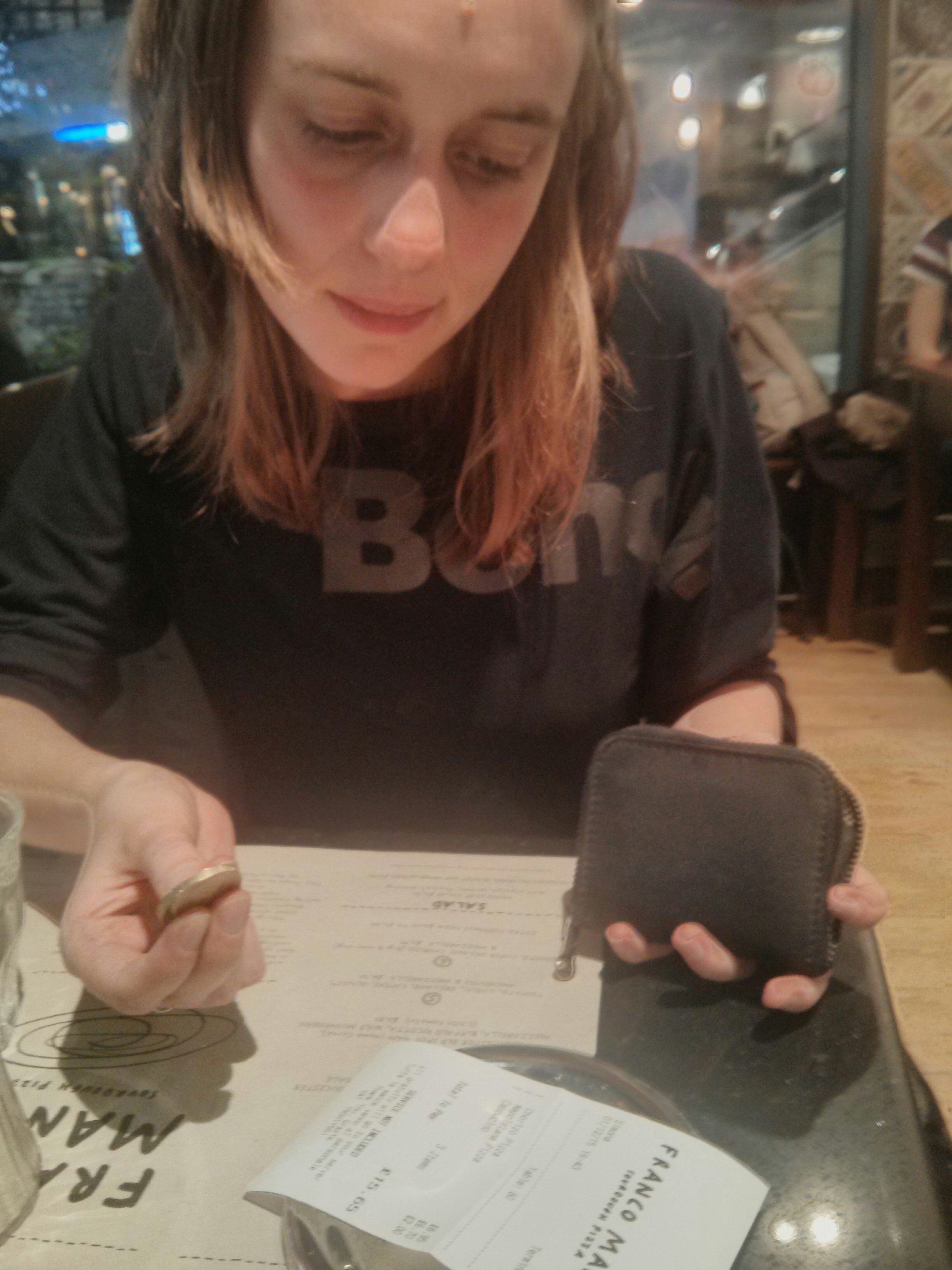Which language does Santa speak?
If, like me, you used to expectantly write a long list of improbable demands to Santa each year as a child, you’ll be curious to know what happened to those letters. Oddly enough, it never ever occurred to tiny Nat to question where the (probably unaddressed, definitely unstamped) letter went once it dropped into the post box: after all, if Santa was so magical then he’d surely have solved the small problem of how to access my very important letter.
But when I was recording Greenlandic recently for uTalk and doing some research on the country, I was intrigued to find that my letters actually may have reached Santa, and that he lived in Greenland. Until 2002, letters to Santa from all over the world would collect in a giant red post box in Nuuk and – here’s the exciting part – if they had a return address they’d be replied to by Santa himself (or an elf).
Sadly, Santa went bust in Greenland, and although letters may still end up there, they won’t be processed or answered. But, being super Santa, he obviously had a back-up plan and didn’t just run things from Greenland: Santa has operations going in Iceland, Sweden and Finland too. In fact, all of Scandinavia claims to be Santa’s home, raising the interesting question of which language Santa speaks.
Of course, we all know that Santa travels around the whole world on Christmas Eve and must therefore be fairly proficient in various world languages (he’s probably been dabbling in uTalk‘s Directions topic, available in 128 languages, to help him find his way), but just to prove it, his operation in Finland, still going strong, will reply to letters in up to 12 different languages from around the world. So Santa’s clearly at least a dodecalinguist!
Why not try to be a bit more like Santa this year and learn a new language? You could start off for free with the January uTalk Challengeand, if you really want to emulate Santa, go for the 12 month language challenge. Complete a language by the end of the month, and we’ll give you another free uTalk Essentials for a new language the following month.
Merry Christmas!
Nat
The uTalk Challenge 2016: New Year, New Language
Quit smoking. Learn Welsh. Finally finish writing that book – and actually let someone read it. Learn Thai. Spend more time sailing. Learn Mandarin. Walk the street map of London. Learn Turkish. Achieve a freestanding handstand and a scorpion/needle stretch (whatever that is). Learn Argentinian Spanish.
These are just a few of the New Year’s resolutions we’ve been setting ourselves in the EuroTalk office, having just realised 2016 has crept up on us and is suddenly, terrifyingly close. And you may have noticed a bit of a language theme…
Introducing the uTalk challenge 2016 – learn a language for free this New Year
That’s because this January, we’ll be taking on the uTalk challenge 2016, using our uTalk app to learn as much as we can of our chosen language before 31st January. Last year Nat stormed to victory in our first uTalk challenge, completing the app in Icelandic before most of us had even mastered ‘hello’… but we’re hoping for a closer contest this time around. And failing that, our back-up plan is to steal her iPad.
How to join the uTalk challenge
But we don’t want to do it alone! So if you’re an iOS user*, and you’d like to finally start learning that language you’ve been talking about for ages, now’s your chance. And even better, the uTalk challenge is completely FREE. All you need to do is sign up at eurotalk.com/utalkchallenge, and on January 1st we’ll send you over a code to unlock the Essentials upgrade (worth £7.99) for your chosen language. Then it’s over to you…
We’ll check in with you each week by email to see how you’re doing and update the online leaderboard, so you can see how your score compares to everyone else’s. AND if you complete the Essentials by the end of January, we’ll give you another language to learn in February, and so on. So if you’re really determined, you could learn 12 new languages in 2016. Now that’s a pretty cool New Year’s resolution.
*Unfortunately the uTalk app is only available on iOS, we’re really sorry! But we don’t want anyone to miss out, so if you’re not an iOS-er and you’d like to take part, drop us an email to challenge@eurotalk.com and we’ll see if we can work out an alternative for you.
Spread the word
Challenges are a lot more fun if you’ve got company, so please help us spread the word to friends and family using the link eurotalk.com/utalkchallenge and on social media, using #uTalkChallenge. And for regular video updates from the EuroTalk team, in which we’ll attempt to demonstrate how much we’ve learnt, come and follow us on Facebook and Twitter.
Some of last year’s uTalk Challengers (who we hope will join us again this year!)…
Ingrid, learning Serbian
I’ve really enjoyed doing the challenge. Serbian is a language I’ve wanted to get to grips with for a long time for quite a bizarre reason (it involves a love of the Eurovision Song Contest!) but I haven’t really known where to start.
Patricia, learning Icelandic
The uTalk app is a whole lot of fun, filled with useful words and phrases. I particularly enjoyed repeating the words and phrases after the native speakers and then hearing my own voice. What a great tool to gain confidence and improve pronunciation!
Jacqui, learning Croatian
After a month, I’ve made great progress. I haven’t earned maximum points (I’m on just over 4000), but I have managed to learn a lot more than I thought I would, even waking up some mornings with various phrases springing to mind!
And here’s how the EuroTalkers got on…
So… who’s up for the challenge?
Rockin’ around the Christmas tree
Have you put up your Christmas tree yet?
Christmas trees are an iconic part of the festive season. It has become a tradition in many towns and cities to place a decorated tree in a central location for all to see, and many people also have a Christmas tree in their own homes.
The Christmas tree custom is believed to have started in Germany, with people bringing decorated Christmas trees into their homes. This became a trend across Europe with Queen Victoria decorating the first Christmas tree in Windsor Castle; with sweets, fruits and gingerbread.
In Trafalgar Square, London, receiving a Christmas tree from Norway has been a wonderful tradition since 1947. This is a gift to symbolise friendship and thanks, for Britain’s support during World War Two. The British Ambassador attends a ceremony in Norway during November, before the tree’s shipped to London for the festive season. This year @trafalgartree even has its own account on Twitter!
Another iconic Christmas tree is the one that stands at the Rockefeller Centre in New York. For those of you who love holiday films, this is the tree where the Christmas tree loving Kevin is reunited with his mum in Home Alone 2. 2015 marks the 83rd year of lighting this 10-ton Christmas tree with over 45,000 lights.
Last year Rio De Janeiro unveiled the world’s largest floating Christmas tree. It was 85 metres tall and had over 3.1 million lights! The lighting of the Christmas tree is the third largest annual event in Rio and each year carries a different theme; last year’s symbolised the importance of light in people’s lives. Unfortunately this year the tree’s metal structure was damaged and it’s had to be reduced to a mere 53 metres…
Here at EuroTalk we love to put up a Christmas tree in the office, it may not be 28 feet tall or have as many lights but it’s still fabulous 🙂
Do you have any Christmas tree traditions? Tell us about them on Facebook or Twitter.
To tip or not to tip?
A social dilemma you’re bound to fall into at some point is whether or not to tip – and how much! Tip too little and you risk the waiter chasing you down the street shouting abuse; tip too much and you might gravely offend the staff. Tipping customs vary all over the world, between different countries and regions (not to mention situations), so do your research before you travel!
How much should you tip?
In the USA, tipping is mandatory and fairly high, with 15-20% being expected. Service wages are fairly low, meaning people factor tips into their pay, and waiters will ask you where their tip is if you haven’t left one.
In the UK, tipping is more relaxed and is never really expected in a pub or cafe, or anywhere with self-service. In restaurants, 10% is usually expected, but if you feel the service was poor then you can express this by not leaving a tip.
Move into Romania, however, where 10% is also recommended (more if you’re really happy with the service), and not leaving a tip would be considered very rude: do not try to return to a restaurant where you didn’t leave a tip.
Drinking tips
In lots of countries in Europe, the traditional attitude towards tipping can be seen in the language: German ‘Trinkgeld’, Swedish ‘dricks’ and Danish ‘drikkepenge’ all mean ‘money for drinking’, as does the Slovak ‘prepitné’, French ‘pourboire’, Slovenian ‘napitnina’, Serbian ‘напојница’ and Croatian ‘napojnica’. The idea behind this is that you just round the bill up or leave a few coins, as a contribution towards a drink for the waiter.
Further East, the direct translation is even more specific: in Russia, you leave money ‘for tea’ (‘чаевые’). The same is true of Kazakh‘s ‘шайлық’ (шай- shai- tea’), Uzbek‘s ‘чойчақа’ and Tajiki‘s ‘чойпулӣ’).
Beware, however, that tipping practices have changed significantly and just a few coins often won’t cut it any more in these countries: be prepared for at least a 10% tip, as a broad guideline.
When not to tip
So far, the problem has only been how much to tip, and if you’ve accidentally tipped too much in America or Europe, it won’t cause any massive problems. But in some areas the attitude towards tipping changes drastically.
In Malaysia, Singapore and Japan tipping is not practised at all and could be considered odd or even offensive.
In Georgia, it can be seen as an affront to the notion of hospitality. Beware as well that a tip can easily be misconstrued as a bribe, which you definitely don’t want to get in trouble for, so make sure you look up before travelling whether tipping is normal practice in the country you’re visiting!
Have you ever been caught out by tipping etiquette?
Nat






